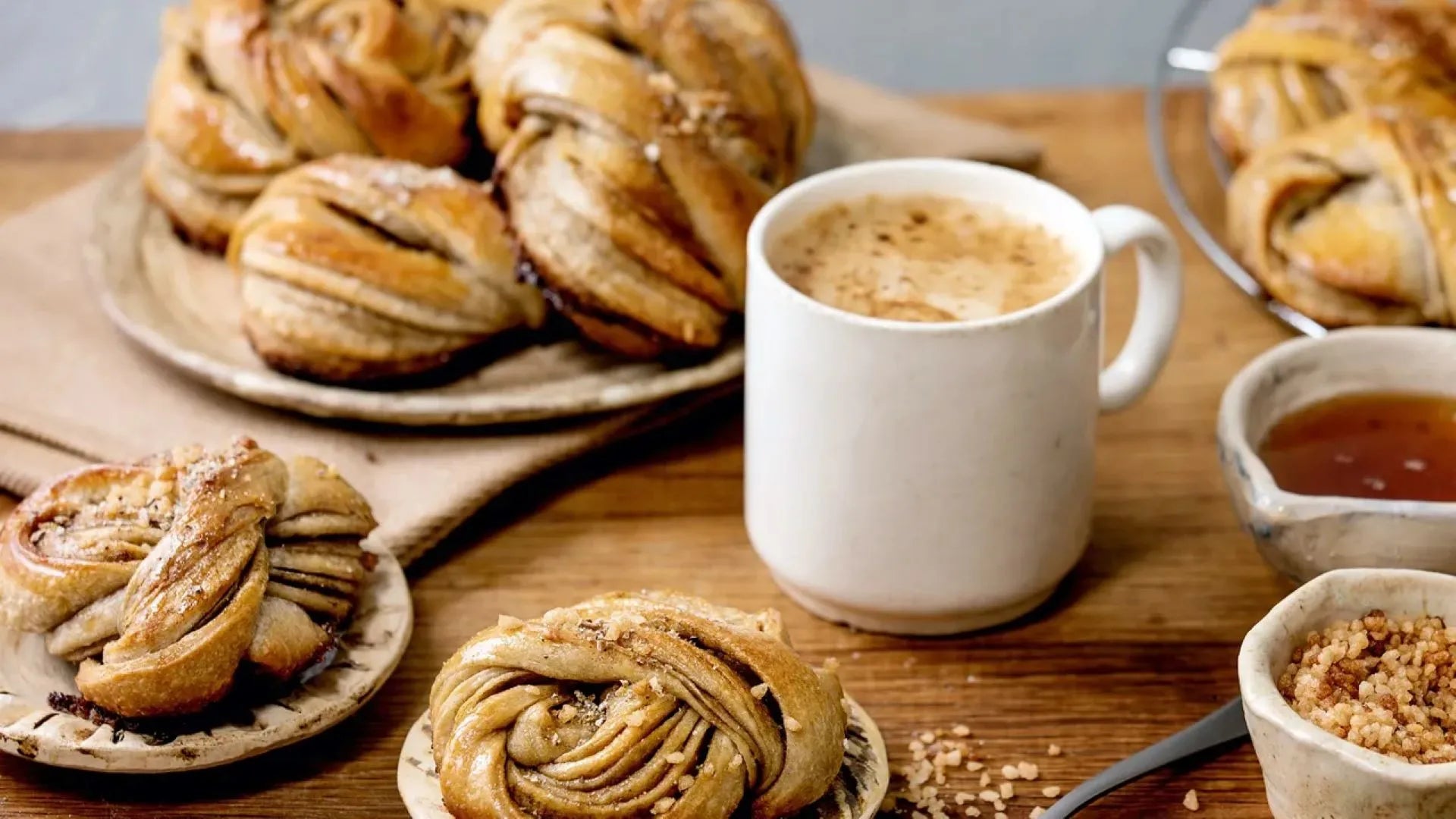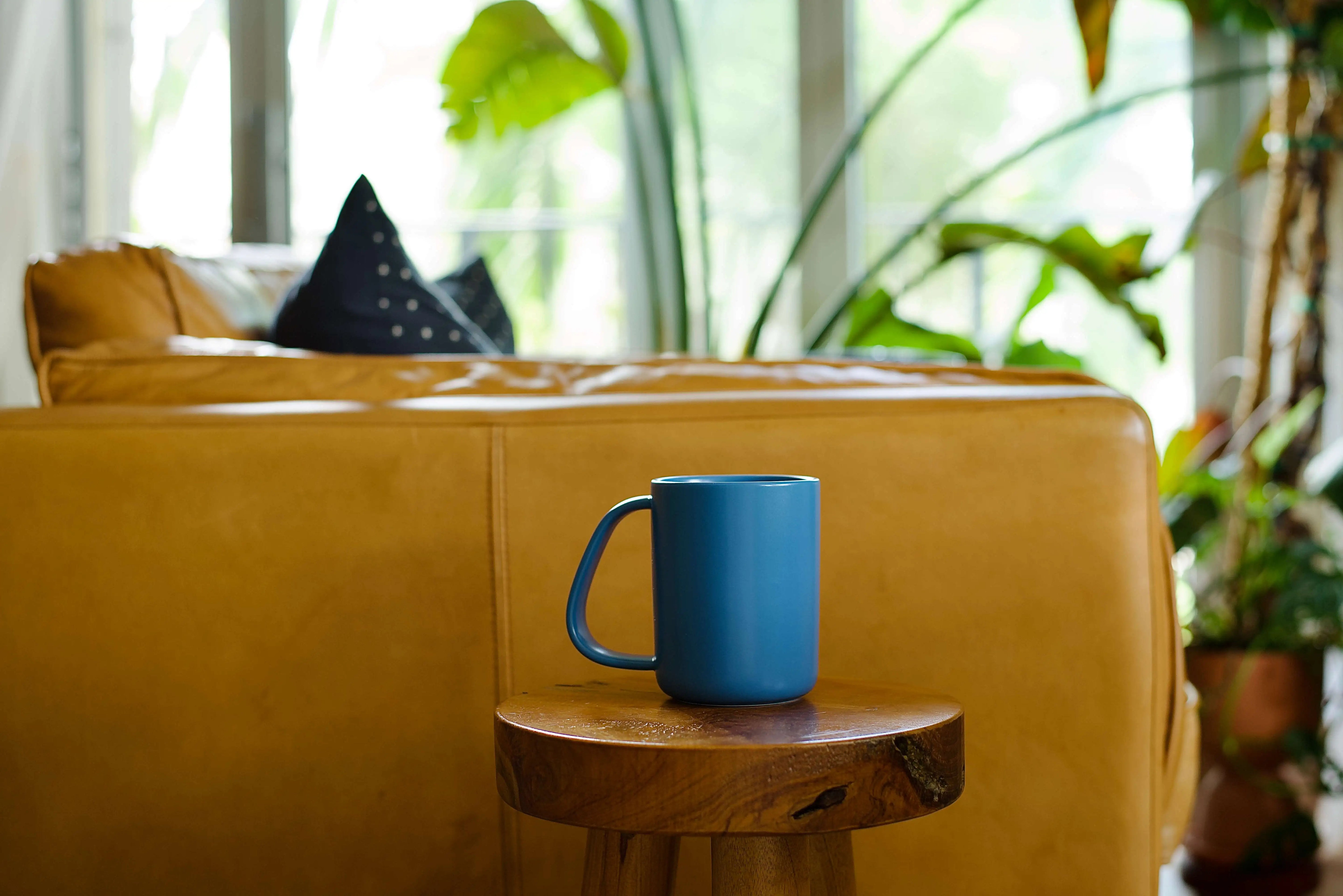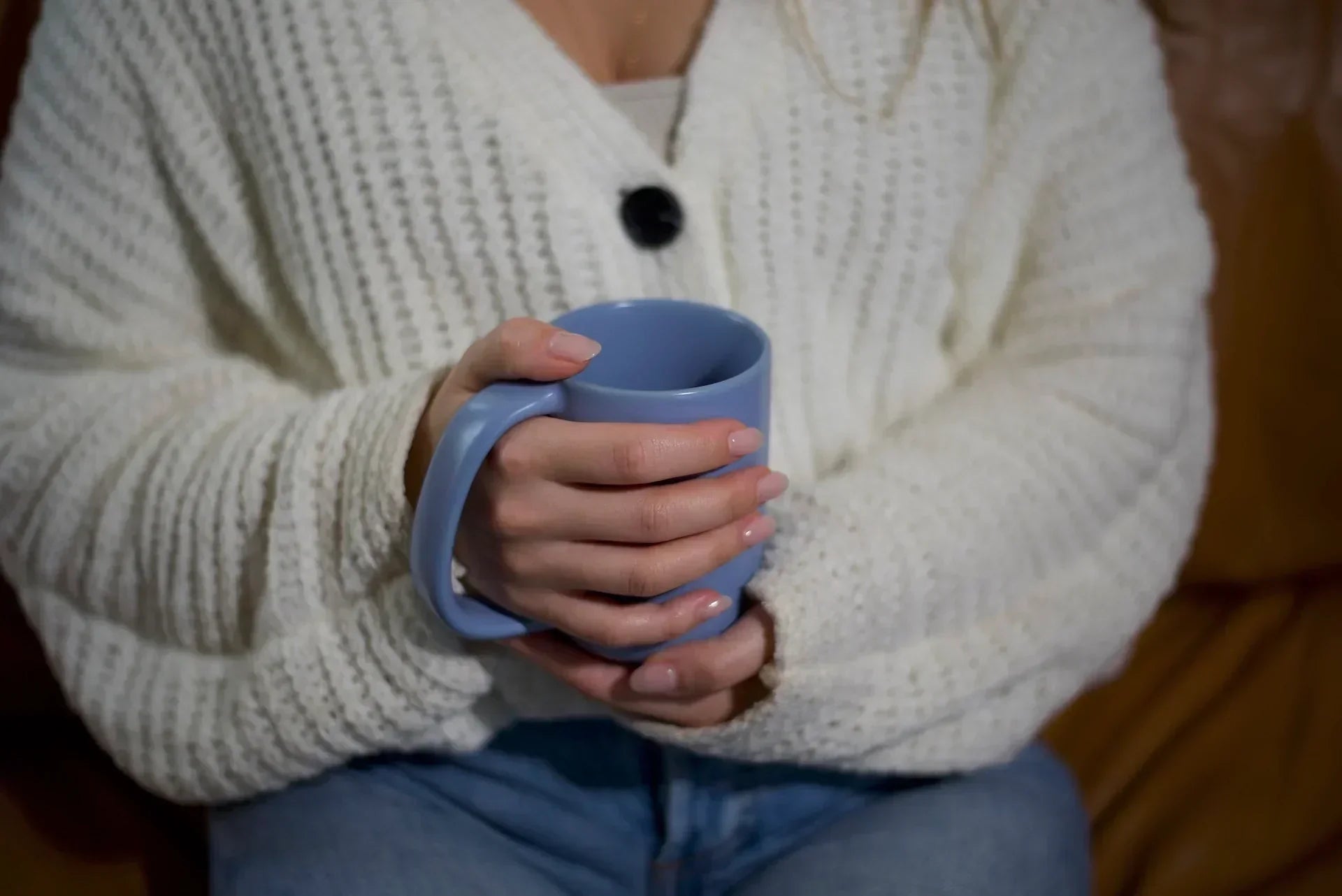For centuries, both matcha and coffee have been beloved beverages, offering unique flavors, rituals, and benefits. As the wellness world grows more intentional about what we sip, the "matcha vs coffee" debate has resurfaced, and with good reason. If you're deciding which to pour into your CURVD mug, this detailed comparison will help you choose based on science, taste, and lifestyle.
Matcha vs Coffee: Nutritional & Caffeine Comparison
|
Feature |
Matcha |
Coffee |
|
Caffeine Content (per cup) |
~70 mg (1 tsp powder) |
~95 mg (8 oz brewed) |
|
Antioxidants |
High (rich in catechins like EGCG) |
Moderate (chlorogenic acids) |
|
L-Theanine |
Yes – promotes calm alertness |
No |
|
Acidity |
Low – gentler on the stomach |
High – may cause acid reflux |
|
Energy Crash |
Rare due to balanced caffeine-L-theanine |
Common after a caffeine spike |
|
Preparation Ritual |
Ceremonial and meditative |
Quick brew, convenient |
Sources:
Health Benefits: Energy, Focus, and Longevity
Matcha provides a steady, calm energy thanks to its unique combination of caffeine and L-theanine, an amino acid proven to reduce stress and improve focus (source). This makes it ideal for people sensitive to caffeine jitters.
Coffee, on the other hand, offers a rapid energy boost due to its higher caffeine content. It's excellent for early mornings or powering through demanding tasks, but may lead to a crash later in the day.
Both beverages are packed with antioxidants, though matcha's EGCG (epigallocatechin gallate) is particularly noted for supporting heart health and reducing inflammation.
Taste & Ritual: Which Suits Your Lifestyle?
Coffee’s bold aroma and robust flavor profile make it the world’s go-to pick-me-up. Brewing methods like pour-over and espresso add to its appeal, with the shape of your mug even influencing aroma release.
Learn more: why coffee tastes better in ceramic
Matcha brings an entirely different experience, earthy, slightly sweet, and requiring a mindful preparation process. For those who love a slow ritual and the beauty of a vibrant green latte in a colorful ceramic mug, matcha feels like a moment of self-care.
Sustainability & Lifestyle Considerations
If you value sustainability, both beverages have nuances. Coffee's global demand has led to environmental concerns around monoculture farming. Meanwhile, matcha production is smaller scale but resource-intensive in Japan.
Whichever you choose, enjoying your beverage in a sustainable ceramic coffee mug like CURVD's—crafted chemical-free, lead- and cadmium-free, can align your sipping habits with your eco-conscious values.
The Perfect Mug for Matcha or Coffee
Your mug matters as much as your drink. CURVD mugs are ergonomically designed for large hands, elderly users, and people with arthritis. Their heat-retaining properties keep matcha lattes warm longer and prevent coffee from cooling too quickly, making them the best heat-retaining ceramic mugs.
They are also microwave- and dishwasher-safe, ensuring convenience for busy mornings.
The Choice is Yours
Whether you're drawn to matcha's serene energy or coffee's bold punch, both have a place in your daily ritual. And whatever you choose, a CURVD mug elevates the experience—effortless beauty, ergonomic design, and unmatched sustainability.
Ready to sip with style? Order your CURVD mug today.
Our Suggestions for Related Content
-
Curious about seasonal trends? Try our best iced matcha latte recipe for summer.
-
For dessert lovers, pair your brew with a vegan mug cake recipe or explore viral TikTok mug cakes.
-
Prefer something frothy? Discover cloud coffee for a unique treat.
-
Unsure about sizing? Learn about the best mug size for espresso-based drinks.
FAQs: Matcha vs Coffee
Is matcha healthier than coffee?
Both offer unique health benefits. Matcha’s antioxidants and L-theanine make it ideal for stress reduction, while coffee supports metabolism and brain health.
Which has more caffeine, matcha or coffee?
Coffee generally contains more caffeine per cup (~95 mg vs. ~70 mg for matcha).
Can I drink both matcha and coffee in one day?
Yes, as long as you stay within recommended caffeine limits (~400 mg per day).
Does matcha stain mugs like coffee?
Less likely, but regular cleaning is best. CURVD’s chemical-free glaze helps resist staining.










